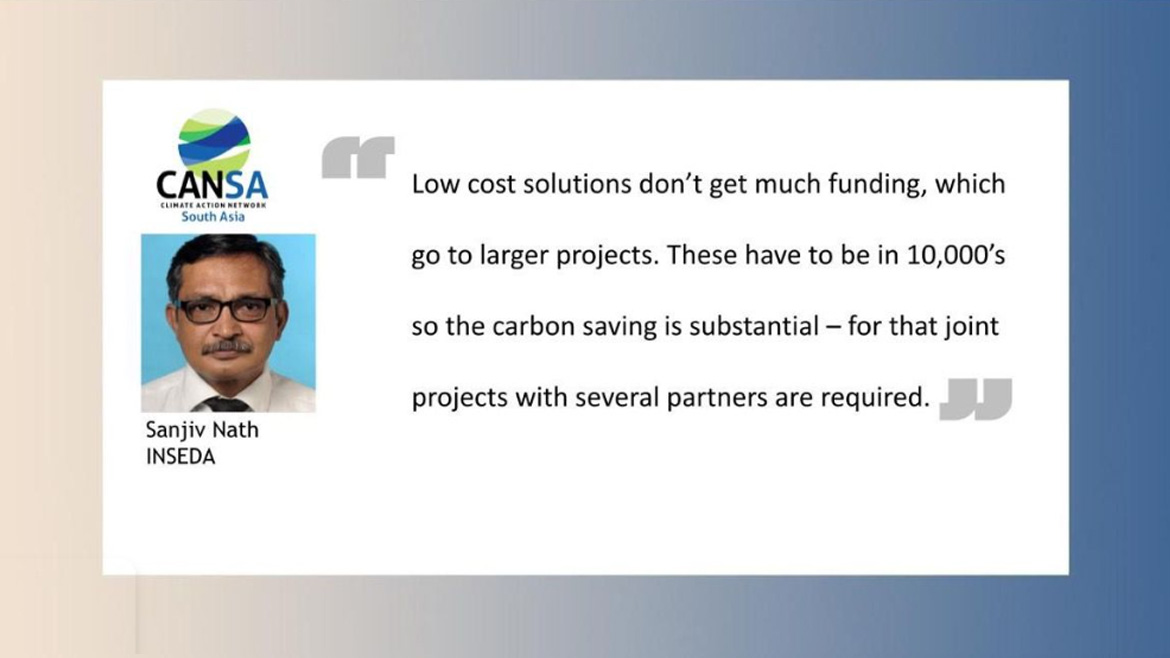Repository of Local Climate Solutions – A Precursor to Regional Collaboration and Advocacy Report on Regional Webinar

The regional webinar began with the short introduction of #EVD project, its objectives, deliverables and outcomes expected from the project. The objectives of webinar was also shared along with broad agenda. Sanjay Vashist, Director CANSA welcomed the participants of the webinar and provided introductory remark. He emphasised that local climate solutions are crucial elements for #Mitigation and ambition. Over the years of EVD implementation, these solutions provided climate co benefits as well as improved livelihood of communities. The library of these solutions will contribute to the sustainability perspectives of the project.
Dr. Md Gollam Rabbani, BRAC emphasised on the usefulness of EVD solution when climate impacts are on the rise in South Asia. He particularly articulated the applicability of local solutions in #Adaptation in South Asia, particularly from the vulnerability context in Bangladesh. He contextualised local solutions as elements of adaptation in sectoral climatic impacts. He suggested that the solutions need to address various challenges being created in the diverse sectors. He also suggested segregation of solutions as per sectors.
The panel discussion involved the introduction of the repository to the audience along with its usefulness in the context of diverse experiences of partners in varied agroclimatic zones. It involved an invitation to CSO to contribute their experiences to the repository to enrich it. The collective effort of the #CSOs could make the repository a tool for regional collaboration. The experience and the evidence collected could contribute to the advocacy initiatives to highlight local solutions. The national experience from Sri Lanka of implementing and crystalising the learnings into the repository in the form of solutions are also discussed.
The question and answer session involved queries from audience on the carbon trading of accrued benefits of local solutions and recognition to the traditional knowledge in shaping the local solutions. Few partners such as INSEDA an Grameen Shakti have had success in registering and obtaining carbon credits for the solutions. It’s agreed that the local solutions must marry to the local culture and traditions. At the same time, climate impacts are increasingly challenging local knowledge and thus needs to be backed by science. The webinar ended with a note that positive benefits of local solutions on livelihood of communities using them need to be documented. Policy advocacy of the solutions are critical and the repository plays a big role in making it possible.





#Adaptation #CSOs #EcoVillageDevelopment #EVD #Mitigation





